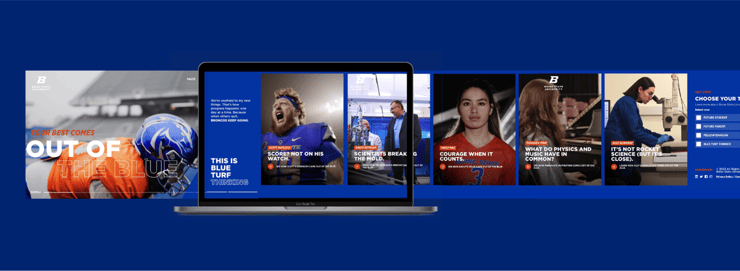At SimpsonScarborough, we’re used to helping our higher ed clients highlight their comparative strengths, but what if a school’s point of pride is the city it calls home?
Recently, when working with the University of San Francisco, we found ourselves wondering just that. For a school with such a strong connection with its city (going so far as to call itself the "University of the Best City Ever"), it was clear that we needed to understand what specifically drew people to San Francisco and how this compared to other cities.
To do so, we designed two questions. First, we gave respondents a list of seven major U.S. cities and asked them to select two that they considered good for attending college or grad school. Next, we gave respondents a list of characteristics – job opportunities in the high tech industry, opportunities for political involvement, climate/weather, and more – that might draw prospective students to study in a given city and asked them to choose those that described two randomly selected cities. With the resulting data, we were able to determine which cities are the most desirable, and for what reasons.
Some key takeaways from our research:
- Factors that stood out among prospective students across the most desirable cities included access to public transportation, diversity, and a range of cultural events.
- Geographic distribution is important to consider when looking at the data; for example, respondents from California were more likely to rate San Francisco as a good college town.
- In the same way that institutions might share strengths with competitors, cities will also have some qualities in common, so it’s important to understand what specifically sets them apart and what an institution should emphasize in its messaging. For example, if many other cities are known for job opportunities in the financial industry, an institution can still reference this aspect of its city while focusing more on its unique connection to the burgeoning start-up industry and status as a popular destination for young professionals.











